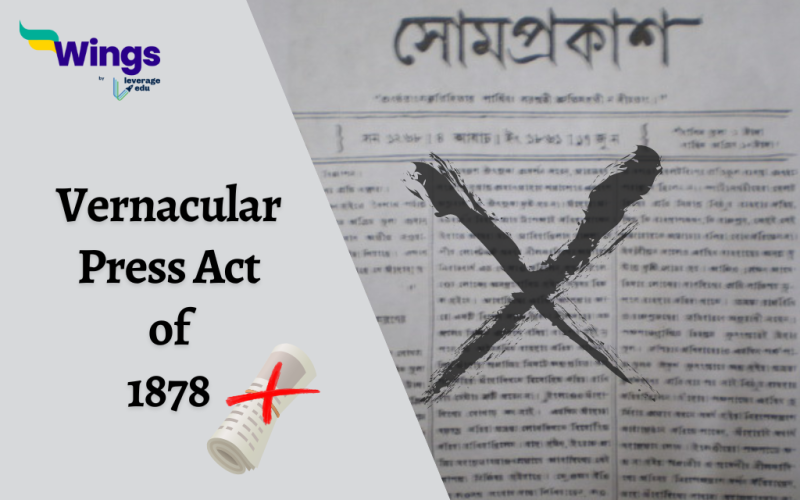After the Revolt of 1857, between the Indians and the British, there was racial bitterness. The vernacular press was critical of the government. Moreover, there was powerful public opinion regarding the imperialistic policies of Lord Lytton, which was composed of the elaborate spending on the Delhi Durbar as well as the 1876 famine. The Vernacular Press Act (VPA) of 1878 was a repressive action that aimed to control and restrict the expression of disagreement in the Indian vernacular press during the colonial British period.
What are the Main Features of the Vernacular Press Act?
The Vernacular Press Act was enforced to ‘better control’ the press and with effect met out punishment to and extinguish ‘seditious writing’ in ‘publications in oriental languages.’ The main features of the Act are as follows:
- The publisher and printer of any vernacular newspaper could be called by the district magistrate to sign a bond with the government. The bond signified that the press would not write anything that would stir up feelings of hostility and dissent among the people of India towards the government. Moreover, the vernacular press could not publish anything that would cause animosity between people of various castes, religions or races.
- Furthermore, a deposit of security could also be asked of the printer and publisher. If they failed to comply with the terms, that deposit would be forfeited. Additionally, if the violation re-occurred the government could seize the equipment of the press.
- No appeal in the court of law could undo the district magistrate’s decision.
- If the vernacular newspaper would submit proof to the government, the paper could be exempted from the Act.
Also Read –What was Wood’s Despatch?
What was the Impact of the Act of 1878 on India?
Indians protested against the Vernacular Press Act because of two significantly atrocious features of the Act, which were:
- The press could not appeal in any court of law.
- The discrimination between the vernacular and English press.
Rightfully so, the Act of 1878 was also nicknamed “The Gagging Act” since it curbed free speech of the press which was the voice of India at that point in history.
Which Vernacular Newspapers were Banned by the Vernacular Press Act of 1878?
The newspapers that came under scrutiny by the VPA were:
- Bharat Mihir
- Som(Shom) Prakash
- Samachar
- Dacca(Dhaka) Prakash
Somehow to evade the scrutiny of the Vernacular Press Act of 1878, the Amrita Bazar Patrika overnight turned into an English newspaper.
Also Read – Development of Press in India
When was the Vernacular Press Act of 1878 Repealed?
In the year 1882, the Act was repealed by the next viceroy Lord Ripon, due to the immense opposition the Act gained throughout India. However, there was even more dislike for the British rule among the Indians and the Act of 1878 just added fuel to the Independence fire.
FAQs
The Vernacular Press made the people of India aware of the atrocities of the British such as famines that were taking place throughout India and their ulterior motives. The people of India knew that freedom was the only option for them.
The nickname of the Vernacular Press Act of 1878 was “The Gagging Act”
The Vernacular Press Act was repealed by Lord Ripon in 1882 since it garnered immense opposition throughout the masses of India.
Relevant Blogs
| Lord Irwin | Lord Canning |
| Lord Ellenborough | Lord Macauley |
| Lord Hardinge 1 | Lord Auckland |
| Lord William Bentinck | Lord Dalhousie |
| Lord Curzon | Lord Minto 1 |
We hope you liked our blog. If you want to read more articles like this you can visit our general knowledge page on Indian History!
 One app for all your study abroad needs
One app for all your study abroad needs













